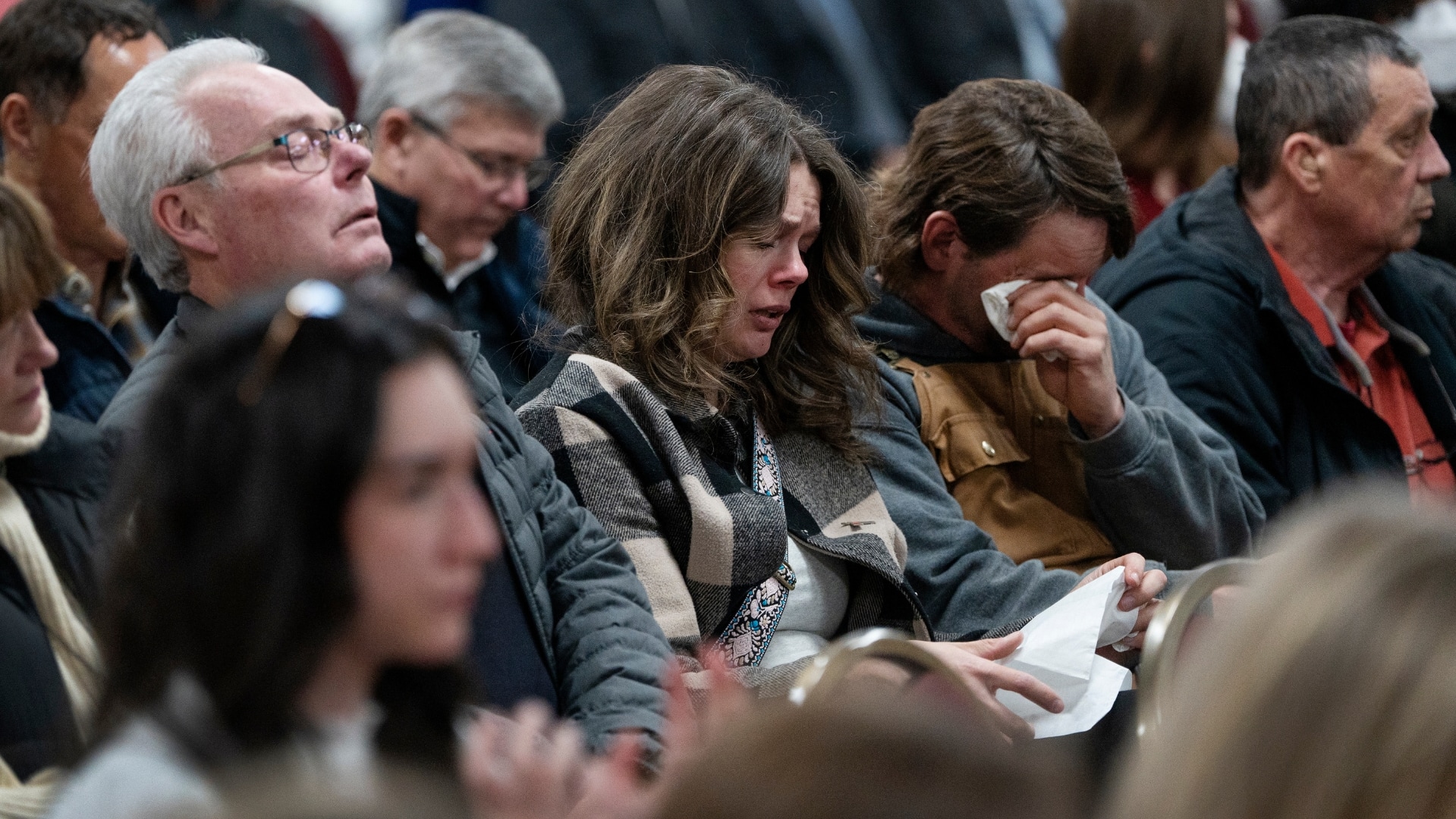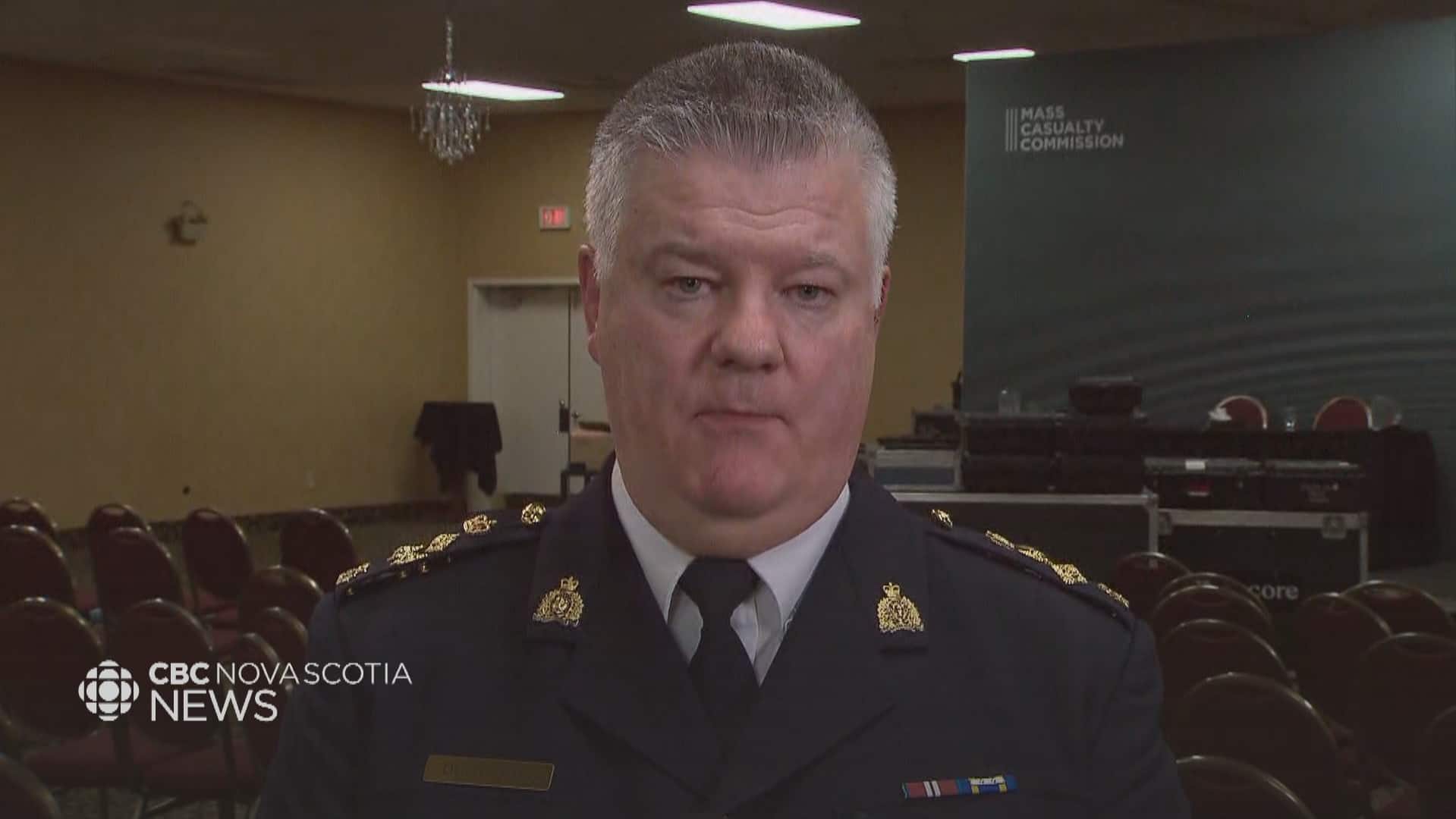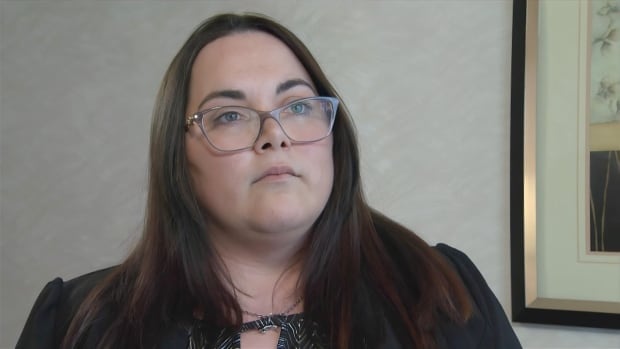
The Current19:40‘There is this opportunity to change it for the next person, so let’s take it’: Daughter of 2020 N.S. mass killings victim on Mass Casualty Commission report
Darcy Dobson says she’s “pleasantly surprised” by the Mass Casualty Commission’s final report on the mass shooting in Nova Scotia three years ago — but had harsh words for the way the inquiry treated families who lost loved ones.
“It really did feel like we were almost like a pest to them,” said Dobson, whose mother Heather O’Brien was among those killed in April 2020 in what became Canada’s worst mass shooting.
“There were certainly times that you knew you weren’t being listened to, or you were being blatantly ignored,” she told The Current’s Matt Galloway.
Dobson’s mother was shot in her vehicle in Debert, N.S., on April 19, 2020, one of 22 people killed by Gabriel Wortman. Starting in Portapique, N.S., the gunman travelled nearly 200 km across the province over 13 hours, while disguised as an RCMP officer, driving a replica police vehicle.
The Mass Casualty Commission, established to determine the causes and consequences of the rampage, released its final report with 130 recommendations on Thursday.
An inquiry into the 2020 mass shooting in Nova Scotia has delivered a scathing report denouncing the RCMP’s actions during the crisis. With 130 recommendations in total, the Mass Casualty Commission recommended a major overhaul to the RCMP.
From the very beginning, the MCC faced criticism from Dobson, other families and even some officials. Families said they felt left in the dark by commission staff, and questioned accommodations that allowed some RCMP officers to testify behind closed doors, and blocked cross-examination by lawyers representing families.
The commission has said those accommodations were intended to create a trauma-informed inquiry, but Dobson’s lawyer Michael Scott said it showed “two very different philosophical ideas on what an inquiry is.”
“From our perspective … it’s a fact-finding process. It’s an investigation out loud. And that requires transparency and candour and honesty,” said Scott, who also represented several other families during the proceedings.
“And we got the sense we were being resisted. There was a no-surprise environment in terms of public testimony. There were obvious questions that weren’t followed up on,” he said.
Michael MacDonald, chair of the Mass Casualty Commission, acknowledged that the process was a challenge. But he insisted that the commission did consult with families, and rejected the suggestion that the commission had seen victims’ families as pests.
“Nothing could be further from the truth,” he told Galloway.
“We could never imagine the suffering that they have gone through, but we did our very best to make sure that we not cause any more unnecessary harm,” he said.
“They were the fulcrum of everything we did. We had them in our hearts and minds and we’ll continue to do so.”
Despite Dobson’s criticism of the way the inquiry proceeded, she said she was encouraged by the commissioners’ report, “especially when a lot of the time it felt like they weren’t listening.”
“It was kind of nice to open the report and be like, ‘OK, like maybe they did listen to some things,'” she said.
Speaking to CBC News Thursday, Dobson said her mother would be proud of the work done to get to the final report. She told Galloway that she remembers her mother as a kind and happy person, who “was like a safe place to land.”
“It’s a different world without her in it, especially for the next generation … her grandchildren,” she said.
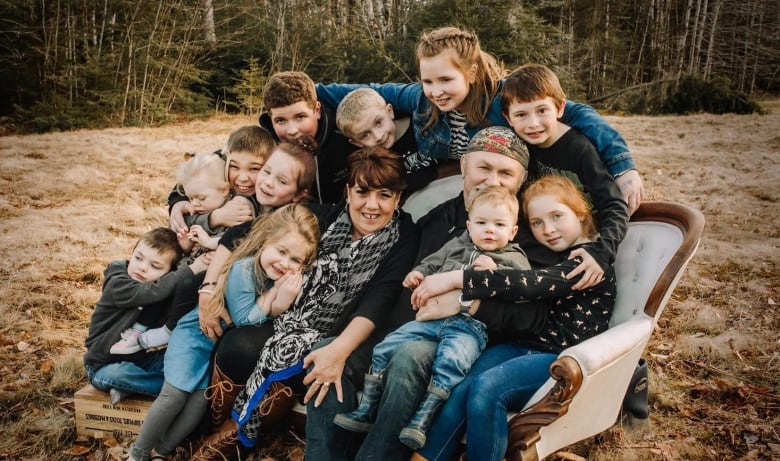
Trust in RCMP broken, says Dobson
The report’s 130 recommendations include calls for a review of public safety alerts, a focus on addressing intimate partner violence, and a collaborative model to ensure public safety.
“We have developed a comprehensive blueprint to make Canadians safer in our homes and on our streets,” said MacDonald.
“If implemented, when implemented, [it] will make us all safer, will make Canada a world leader.”
Half of the report’s recommendations relate to the RCMP, citing a lack of preparation, communication and issues in leadership — both in terms of action taken as the shootings unfolded, and the inadequate support offered to grieving families in the aftermath. The report calls on the organization to acknowledge these problems, and make fundamental changes to correct them.
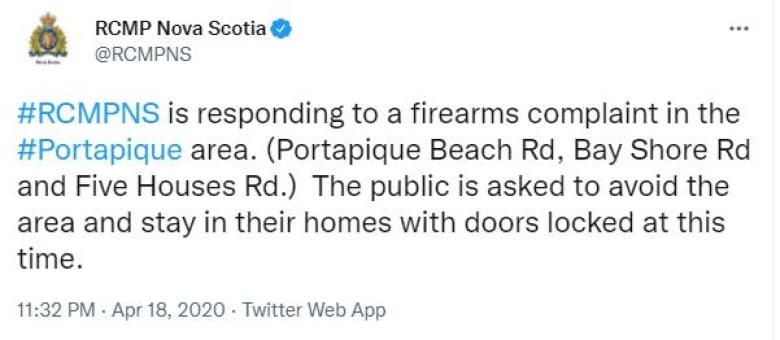
As the attacks unfolded overnight between April 18 and 19, the RCMP did not use the emergency alert system that would have sent messages to residents’ cellphones, but instead posted updates to Twitter. It was only at 10:17 a.m. on April 19, roughly 12 hours after the attacks began, that a tweet publicly acknowledged the gunman may be disguised as an RCMP officer, driving a replica RCMP vehicle.
Dobson’s mother was killed at around 10 a.m. She and other families say their loved ones might have stayed home, or otherwise avoided the gunman, if that information had been public sooner.
Dobson said her community’s trust in the police has been lost — and she doesn’t yet know how it could be restored.
“There will never be a moment in my life that I see an RCMP cruiser go down the road and shivers don’t go down my spine,” she said.
The Current23:09N.S. Mass Casualty Commision report calls for sweeping reform to the RCMP
RCMP assistant commissioner hasn’t read report
Assistant Commissioner Dennis Daley, the head of the Nova Scotia RCMP, said he recognized the need to rebuild those relationships, and hoped to regain the public’s confidence.
“What I’m hoping is that they do see us taking the report serious, they do see us changing. They do see us evolving and even implementing changes before the report came out,” he said.
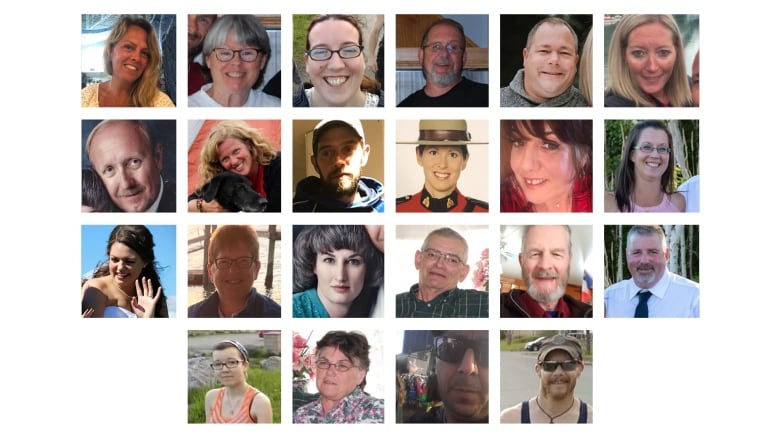
The RCMP received the report Wednesday at 9 a.m., but speaking with Galloway on Thursday, Daley had not yet read it.
“I will read the report in its entirety. I’ve committed to Nova Scotians that we will act on each of the recommendations,” Daley said.
He added that the RCMP did not wait for the report before making changes, including to the emergency alert system. There have been “significant strides” in the police’s approach to and use of the system, which previously was mainly used for sever weather alerts, he said. Speaking with CBC News Thursday, he said the RCMP has invested in new equipment, more training, and enhanced its protocols around critical incidents.
In an interview with Tom Murphy, Dennis Daley talks about changes made since the Portapique tragedy, including emergency alerting.
Dobson said she doesn’t think the RCMP understands the magnitude of the problems, but she hopes the report can be used as a “talking point.”
“It gives us a start to say, ‘Well, here we gathered all the facts, there is an issue here. Let’s talk about it,'” she said.
The report recommends a body be established to ensure that changes are implemented, something Dobson said she’d be keen to be involved in.
“This whole exercise is pointless without the implementation,” she said.
“Let’s look at what we did wrong. Let’s take accountability for our actions and fix it for the next person that sits here — and I hope to God there never is another person that has to sit here.”
If you are experiencing distress or overwhelming emotions at any time, you can call the Nova Scotia Provincial Crisis Line 24/7 at 1-888-429-8167. The Nova Scotia Provincial Crisis Service can also provide contacts for other crisis services that are available if you live outside Nova Scotia.
If you or someone you know is struggling in any way, you can call 211 or visit 211.ca. 211 offers help 24 hours a day in more than one hundred languages and will be able to connect you directly to the right services for your needs.
The Kids Help Phone is a national helpline that provides confidential support at 1-800-668-6868 or Text CONNECT to 686868.
Additional supports for across Canada are available at www.wellnesstogether.ca.
